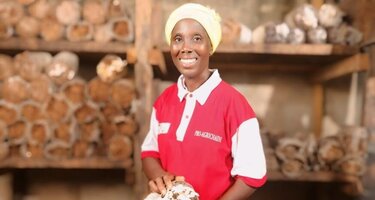Côte d’Ivoire: Four Years of Shared Work for Sustainable Cocoa, Rubber and Coffee
After four years of close collaboration with public and private partners, the Côte d’Ivoire Team is concluding its activities. The project has worked with thousands of smallholder farmers to strengthen their livelihoods, diversify income sources and promote deforestation-free, fair and climate-resilient agricultural production.
A shared effort for more sustainable agriculture
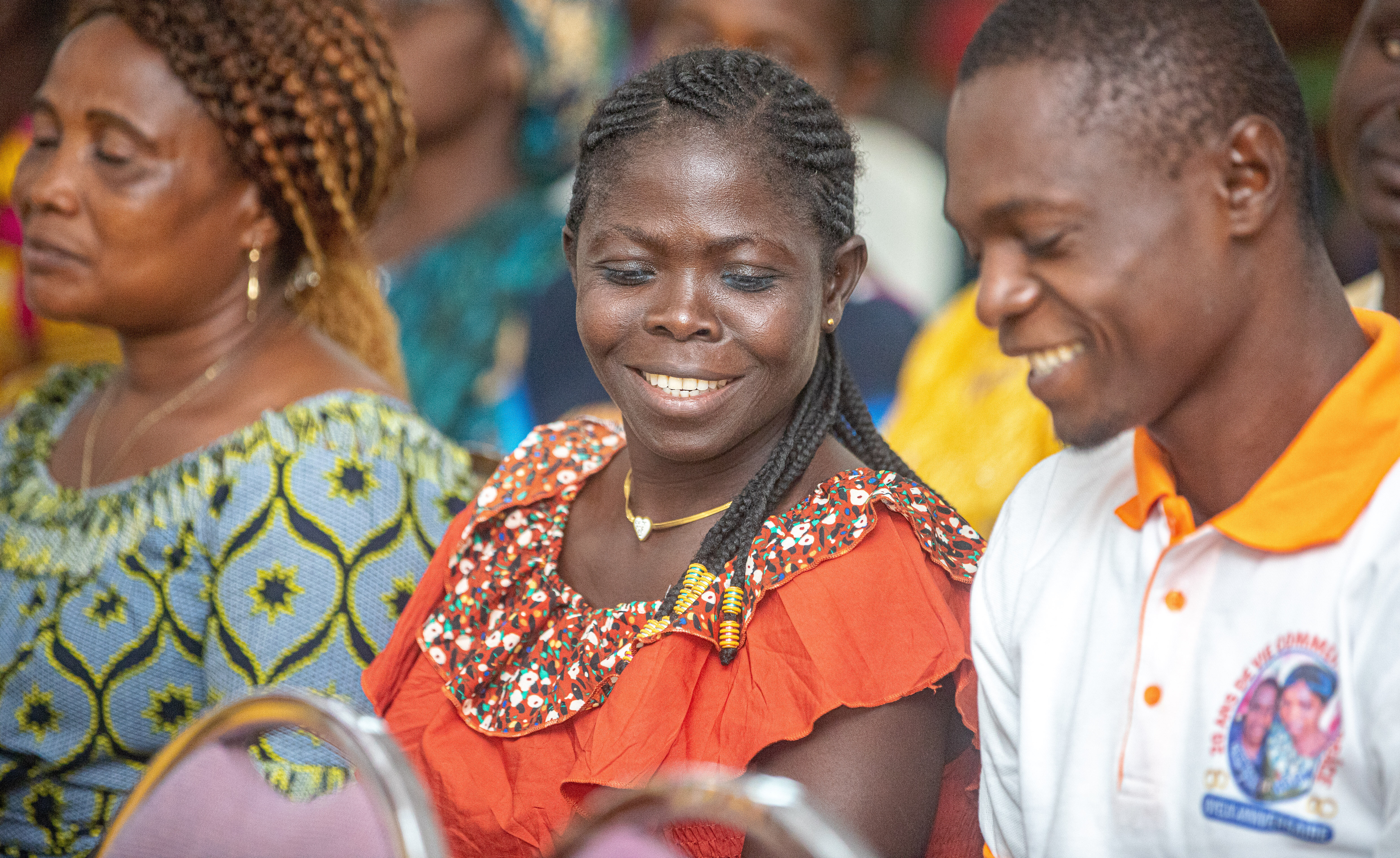
Côte d’Ivoire is a country with a rich agricultural sector and global significance in cocoa, rubber and coffee production. Agriculture contributes over 20 % to the national GDP and provides a livelihood for millions of people. The country is the top producer of cocoa with 40% share of global cocoa production. In addition, it is the top African producer of natural rubber and ranks in the top 5 coffee producers in Africa. However, many rural households continue to live below the poverty line, face land pressure and environmental degradation – challenges rooted in historical and structural inequalities within global trade.
The AgriChains Côte d’Ivoire Project, a project under the Sustainable Agricultural Supply Chains Initiative (SASI), was established to address these challenges jointly with national institutions and private partners.
The Team in Côte d’Ivoire brings together farmers, farmers’ cooperatives, private sector actors, government agencies and civil society to promote sustainability in the cocoa, natural rubber and coffee supply chains.
Partnerships that make a difference
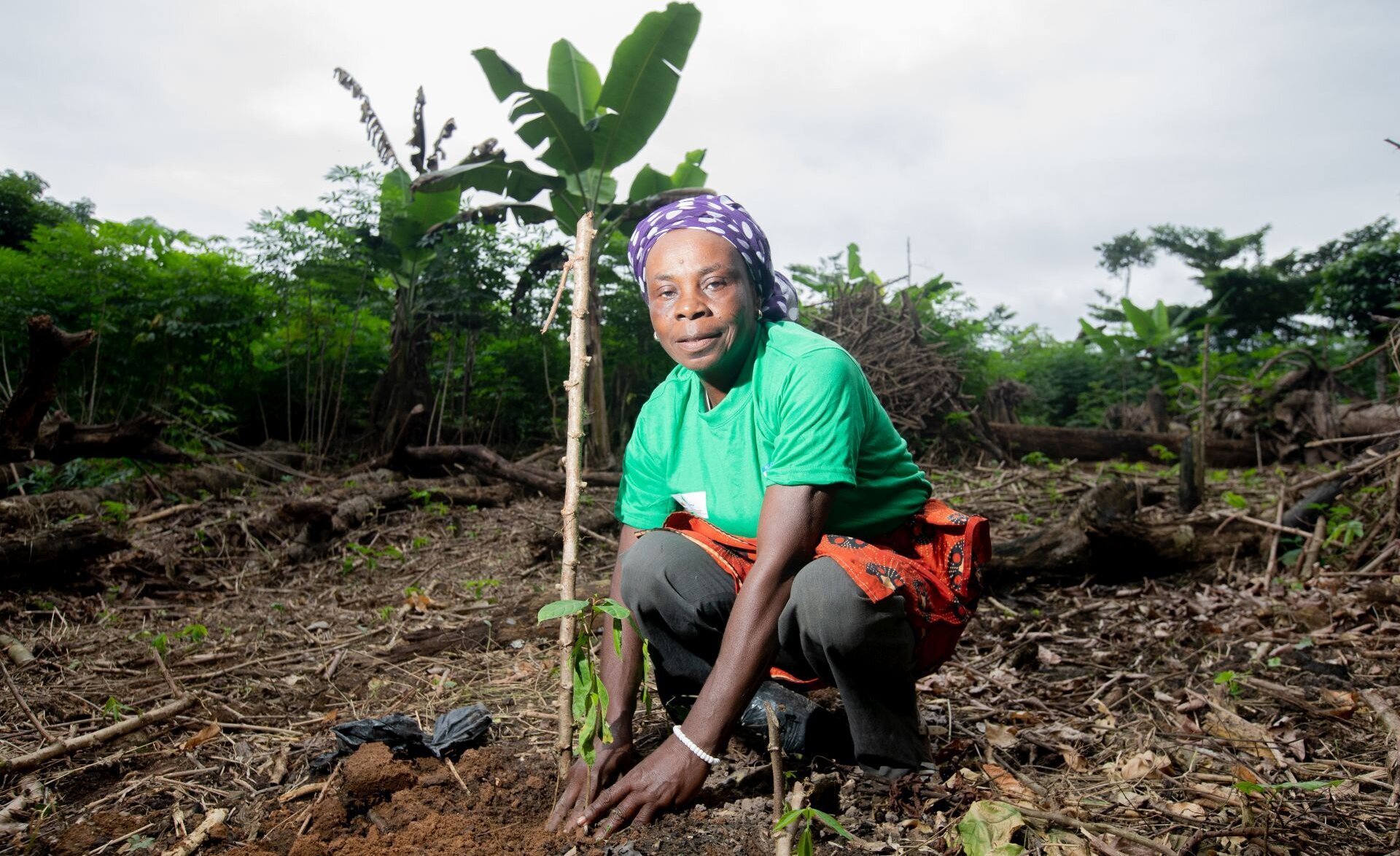
Over the past four years, SASI has worked closely with:
- Public institutions: Ministry of Agriculture (MEMINADERPV), Coffee-Cocoa Board (CCC), natural rubber and palm oil board (CHPH), and the National Agricultural Extension Agency (ANADER);
- Private partners: Nestlé, Olam Agri, SAPH, SCANIA and LONO CI;
- Civil society: Fairtrade Africa, Solidaridad West Africa, Nitidae, IRAM and INKOTA e. V., among others.
Together, we trained more than 17,000 smallholder farmers in good agricultural practices and farmer business schools. 82 % report improved skills and knowledge, while 4,000 people have seen their working conditions improve.
More than 60,000 hectares of forest were preserved, 12,000 trees planted, and 500 hectares converted into agroforestry systems.
Innovations that create local value
The project promoted innovative approaches such as using cocoa husks to grow mushrooms or producing biodiesel from rubber seeds - practical ways to turn agricultural by-products into new income opportunities. One inspiring example is Mrs. Adingra Yawa from the La Mé region:
“Thanks to mushroom production, I have seen my income increase considerably. I achieved a turnover of about 3,600,000 FCFA (≈ 6,000 EUR) in 2024. With this additional income, I contribute to my household expenses, such as children’s schooling.”
Together with other producers in her cooperative, Mrs. Yawa has transformed cocoa waste into a new local market opportunity. Today, she sells mushrooms in Abidjan and serves as a local role model for income diversification in cocoa-growing communities.
Strengthening women’s leadership and forest protection
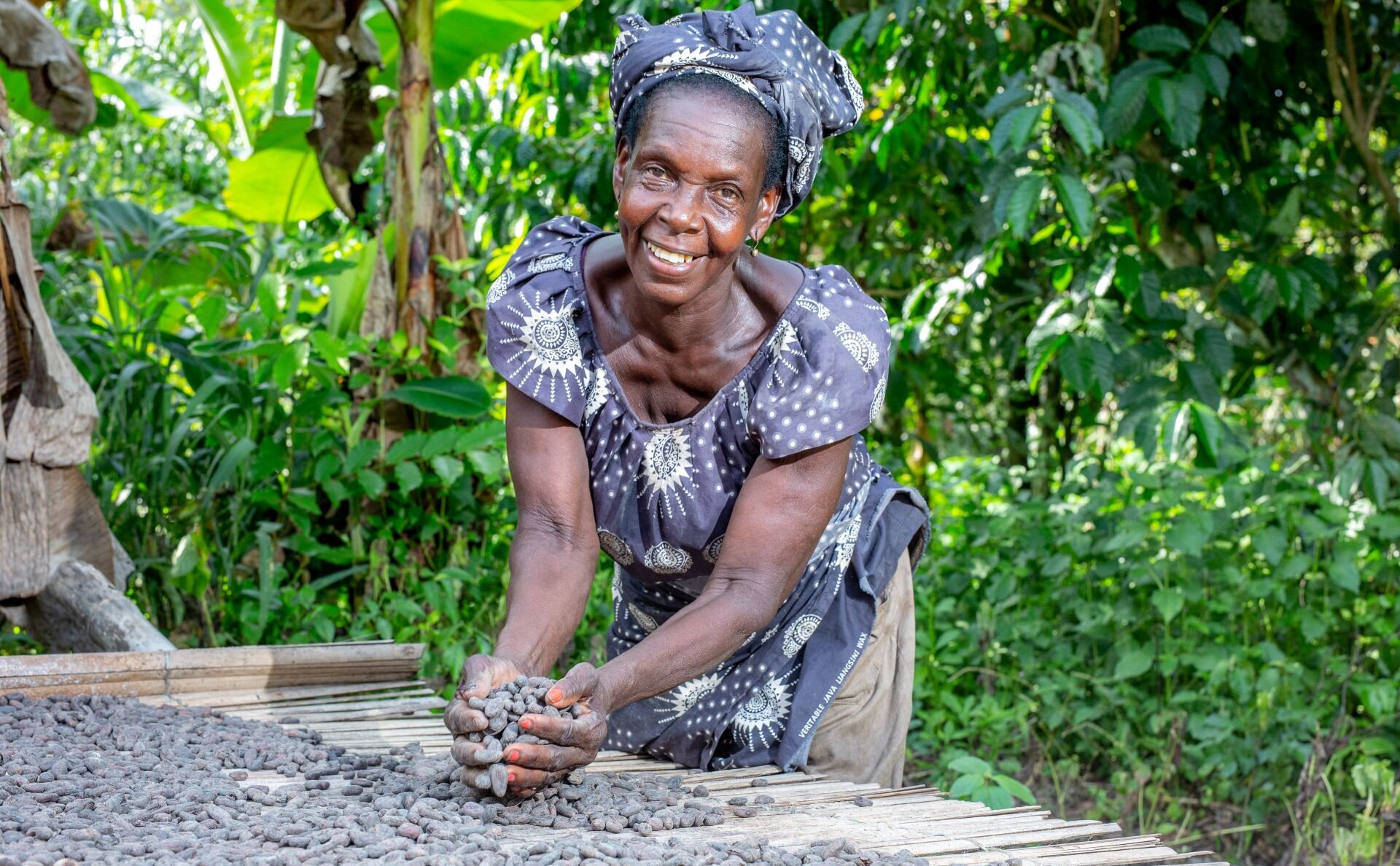
Across the country, 3,000 women received leadership training and formed 120 village savings and loan associations (VSLAs), mobilizing over 100 million FCFA to finance local initiatives.
At the same time, the project supported the national parks authority (OIPR) with satellite monitoring of protected areas and supported youth groups engaged in community-based forest monitoring around the Mabi-Yaya Reserve. Together with the private actor SAPH, a joint declaration was signed to ban sourcing from protected forests—marking a milestone for transparent and responsible supply chains.
Looking ahead
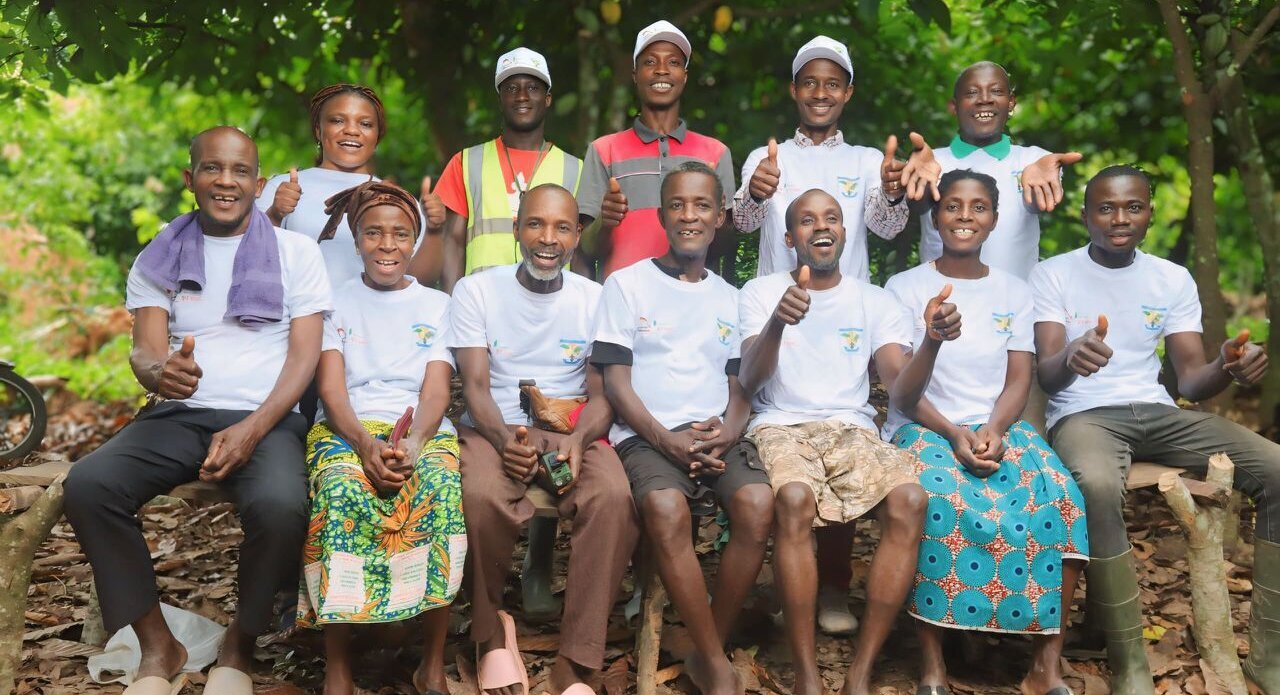
As the AgriChains Côte d’Ivoire project concludes, its achievements remain visible in stronger farmer organisations, more equitable participation of women and youth, and concrete steps toward climate-resilient, deforestation-free supply chains.
The partnerships and local ownership strengthened over these four years will continue to inspire sustainable practices—both within Côte d’Ivoire and beyond.
